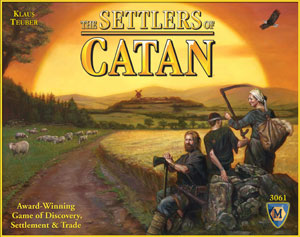By Jennifer Sung
In the 21st century, there are different forms of entertainment for college students. Whether it be deep late night conversations at 3am on a school night or binge watching a Netflix tv show, the majority of college students spend most of their time bumping up their social life. Once greatly underrated, playing board games became popular recently as another form of entertainment amongst college students. Amongst the many, there are three board games that have been placed at the top of most recommendation lists: Codenames, Settlers of Catan, and Avalon. All of these board games aim to stimulate teamwork, cognition, decision making, logical reasoning, and the ability to work in social contexts.
Codenames is a word associated game that encourages cleverness and creativity. Codenames was labeled as the 2016 Game of the Year. Everyone is split into 2 teams, and is given a handful of words to describe to the other team. The “spymasters” for each team need to give one word clues that group up meanings or hint at one or more words that the rest of the team need to decode. This game tests the closeness, the teamwork, and the communication skills of the group. There are two versions of this game (uncensored vs censored). The uncensored version utilizes more adult-appropriate words that seem to be more popular amongst college students. The censored version is a more family-orientated game.
Settlers of Catan is a game that gambles luck, strategy, and decision making. The board is different depending on the initial roll, placement of the boards, and the actions of the other players. Fairly different from other games, this game has everyone involved on every turn. Anyone is eligible to receive a resource each time the dice are rolled, no matter who rolls. Additionally, everyone is allowed to trade with the current player rolling the die. This game is about trading sheep, wood, bricks, and wheat to build roads, houses, buildings, and cities. The goal is to monopolize the resources and other players to win the game. This amount of time spent on this game varies from 30 minutes to even 2 hours. This game is all about player interaction, replayability, and a beautiful mix of luck and strategy.
Continue reading The Board Game Makes a Comeback, and College Students Rejoice!




